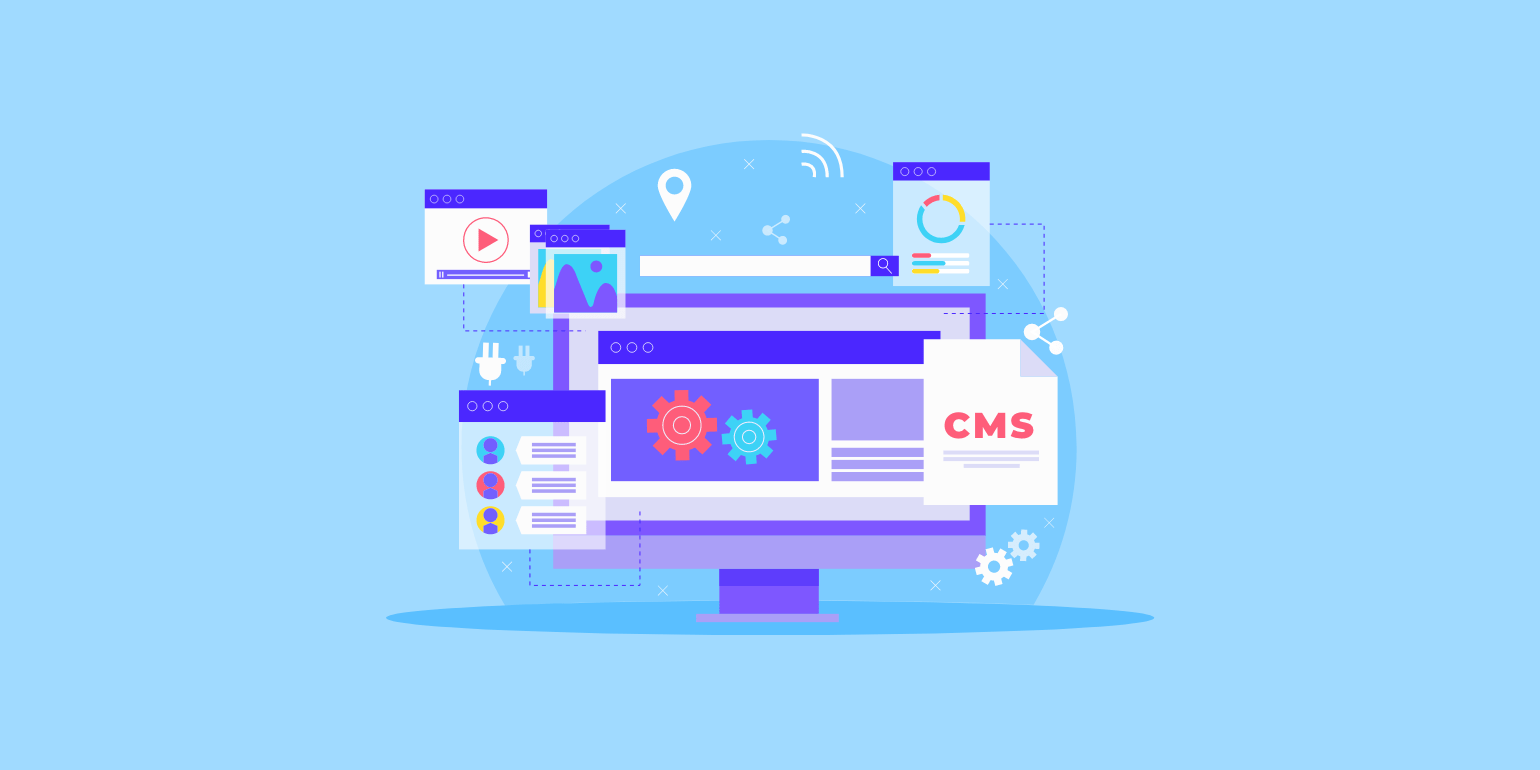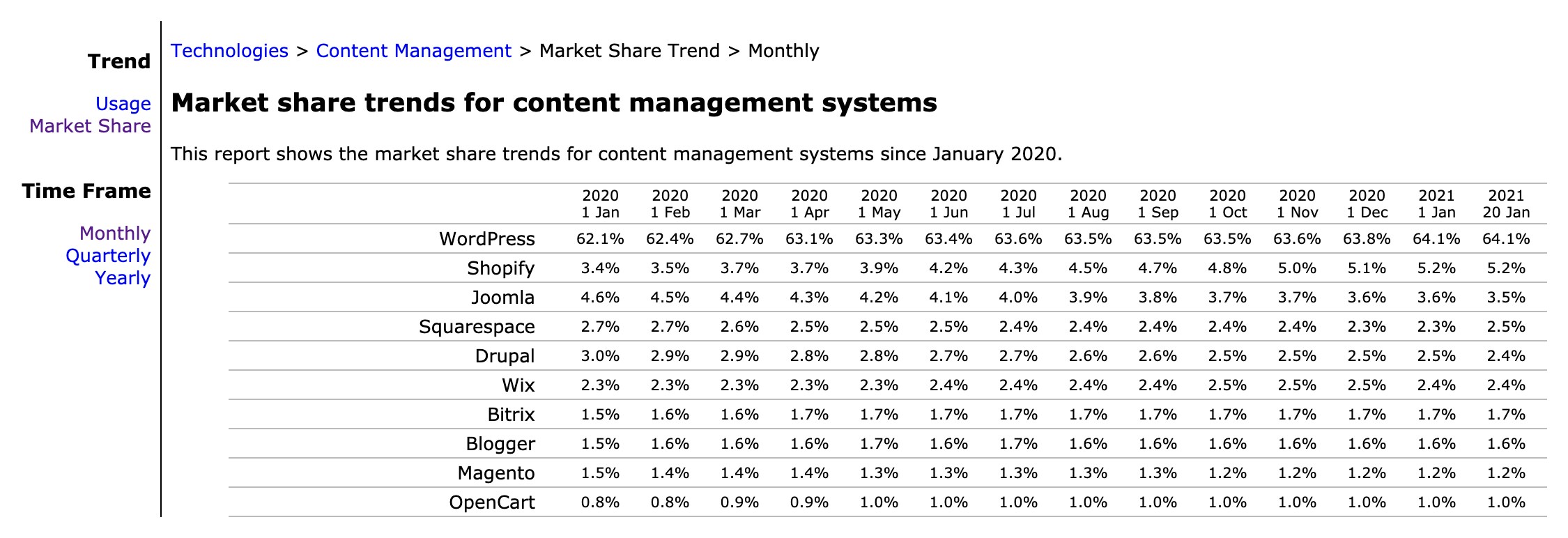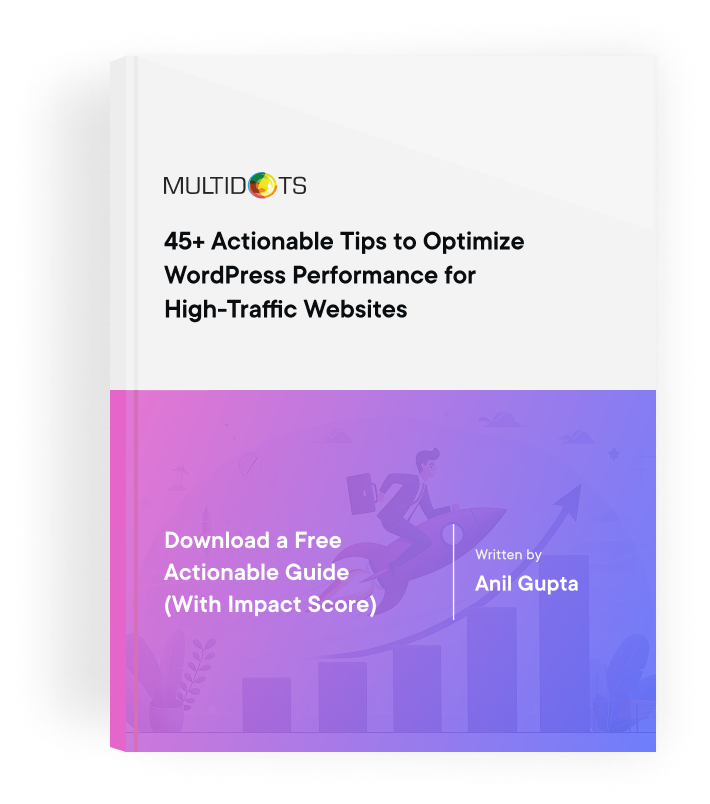5 Things to Keep in Mind While Choosing the Right CMS for Your Website
Consider these 5 key factors to choose the right CMS for your website and ensure optimal performance and functionality

Table of Contents
Don’t think of a website purely from an online presence perspective. It is a critical tool in your digital transformation strategy as well. In a world where digital-first is an imperative if you want to compete and prosper, your business needs to choose its CMS with a lot of foresight. Yes, WordPress is a popular CMS and it’s definitely a go-to CMS for numerous businesses across the world, but is it the right choice for your website? When evaluating CMS options, it's important to consider not just the most popular platforms, but also other platforms that may better fit your needs and offer unique features. E.g., if you are using a Django website, you need to think carefully whether transition to WordPress from Django will make sense. You should also compare your current CMS with new CMS options to determine if an upgrade is necessary for your business.
This is the critical question.
The ideal CMS should be able to deliver highly engaging and satisfying customer experiences to visitors. It’s not just about how easy it is for you to keep your website updated and running with zero downtime; it is also about the functional experience of its users. The end user experience and user interaction are crucial, and a CMS platform should support seamless management of web pages and make it easy to publish content.
If popularity is a key determinant of making the right choice, then WordPress towers over all other content management systems, and the difference between WordPress’ market share and that of its nearest competitors is stark. However, you should not limit your choice to one CMS or a traditional CMS; consider headless CMS and other platforms that may be better suited for your business goals and current operations.
However, it is important that you not only focus on the popularity of a particular CMS, but also on your needs and expectations. In the decision-making process, involve your tech team, marketing teams, IT staff, content team, and various departments to ensure all technical and business requirements are addressed.
When considering hosting and scalability, most companies and many organizations prefer cloud hosting for their CMS platform to support growth. The tech stack and integration with mobile apps are also important factors to evaluate for long-term success.
Your business needs and strategy should drive your CMS selection. The best CMS is the one that aligns with your business goals, supports your content team, and provides actionable insights for continuous improvement.
How do you go about choosing the right content management system (CMS)? You should evaluate the CMS options available, considering the needs of small business and the potential to create and manage tens of thousands of web pages as your business grows.
In terms of website management, a CMS platform can be created or customized to meet unique requirements, and creating a new website with the right CMS platform is a top priority for many organizations.
The right CMS platform and CMS solution can help create and deliver powerful digital experiences and a comprehensive digital experience for end users.
Introduction to CMS Selection
Selecting the right content management system (CMS) is a pivotal step for any organization aiming to build a successful digital presence. With a vast array of CMS platforms available, choosing the right CMS can feel like a daunting task. The decision you make will directly impact your content management processes, the efficiency of your team, and the overall user experience on your website. A well-chosen CMS should align with your content strategy, support seamless integration with other backend systems, and scale as your business grows. As you begin the process of selecting a CMS, it’s important to evaluate key factors such as hosting options, scalability, control, and ongoing maintenance requirements. By carefully considering these elements, you can make an informed decision and select the right content management system that will empower your organization to achieve its digital goals.
How do you go about choosing the right content management system (CMS)? Here are a few things you must consider:
1. The Focus on a Personalized Experience
Customer-centricity is the key. Will the CMS offer a convenient and personalized service to its users. Remember, website visitors are not just visitors, they are your potential customers or product consumers. Think of your website as a conversion machine that converts potential customers into paying customers. A strong end user experience and thoughtful user interaction design are essential for driving conversions. So, don’t take them for granted because your competitors won’t be making that mistake. You need to think about making the website experience better for your customers.
The CMS you choose must be able to offer a unifying experience across all devices used by your customers like desktop, laptop, and mobile. Integrating with mobile apps and focusing on digital experiences can help create seamless interactions for your customers. This means these must be effective and seamless rendering of your website ensures your customers are able to navigate the site, access all information and make a positive buying decision.
2. Need Based Approach
Let’s take the example of healthcare. If you are active in the healthcare domain and are looking for the perfect CMS to meet your needs and requirements, the first question that you and other decision makers should ask themselves is, "What is the kind of functionality, I want from my site?"
Take a closer look at Insights & Trends from Geonetric’s 2020 Healthcare Digital Marketing Trends Survey, and check what marketers/website stakeholders expect from their healthcare website. When they go about choosing a CMS for their needs, they have to make sure that the website features will align with their needs. Actionable insights from such data can help guide the selection of a CMS that addresses the requirements of various departments, such as IT, HR, and sales, ensuring the platform supports the diverse workflows across your organization.
The same survey underlines what stakeholders feel are competitive differentiators when it comes to website features. Your website has immense strategic value and more often than not plays a critical client/customer facing role. Its features can ensure, you are able to steal a march over your competitors.
3. The Global Approach
This allows you to offer content in a language that your customers understand. Providing localized content in this way significantly enhances the overall digital experience for your global audience, ensuring consistent and personalized interactions across regions.
One of the biggest differences is language.
"Based on a survey of 8,709 global consumers in 29 countries in Europe, Asia, North America, and South America, CSA Research found that 76% of online shoppers prefer to buy products with information in their native language. In addition, 40% will never buy from websites in other languages."
Source
This is a marketing challenge, but with the right CMS you can deliver localized content in numerous languages.
This essentially means you don’t have to worry about getting your message across in a different language. This will be taken care of by the CMS at the backend. In WordPress, you can activate a multilingual plugin to get the job done.
Here are a few multilingual plugins, you can use for this purpose:
- The WordPress Multilingual Plugin
- Weglot
- Polylang
- GTranslate
- TranslatePress
This allows you to offer content in a language that your customers understand.
4. Adapt to Technology That is in a Constant State of Flux
Your website must evolve to keep up with the rapid advances in technology. We are living in a world where technology is being used to automate repetitious tasks; Big Data is being used to make key business decisions and various other tech advances are helping businesses empower their key marketing activities.
Your website is a key component of your business’s marketing ecosystem and it can act as a critical driver of technological advances across your business. You need a CMS that allows you to incorporate as much technology in your marketing activities as possible. When selecting a CMS solution, it is important to evaluate the tech stack of each option to ensure it integrates smoothly with your current operations and supports your future needs. Your CMS must be flexible enough to adapt to technology and should help you capture, analyze and evaluate visitor data to make key business decisions.
5. The Mix of Content and Context
A vanilla CMS doesn’t work these days. This is the time for content mixed with context. An impersonal website experience needs to be shown the door. Welcome abroad a CMS that helps you deliver the kind of content experience that drives brand recall and personalization. A CMS must be directly aligned with customer journey so that it is able to deliver the right offer to the customers at the right time in the right context, up until the customer makes a decision that is favorable to your business.
Ideally, you need to be able to focus on your business and your CMS should be configured in such a way that it ties in with your business needs and objectives. The right CMS supports your business goals by empowering your content team and creating efficient content workflows that help deliver seamless digital experiences. You don’t need to wonder if your CMS is aligning perfectly with your needs in the background. You must ensure you have picked the right CMS that meets your expectations.
Integration and Backend Systems
A critical aspect of selecting a CMS is its ability to integrate with other backend systems and technology solutions that your business relies on. The right CMS should offer robust integration capabilities, allowing you to connect with marketing automation tools, customer relationship management (CRM) platforms, and other essential business applications. This seamless integration streamlines workflows, reduces manual data entry, and ensures a consistent customer experience across multiple channels.
Additionally, if your business serves a global audience, look for a CMS that provides multilingual support and can manage content in multiple languages. This not only enhances your reach but also strengthens your business strategy by making your website accessible and relevant to diverse customer segments. By prioritizing integration and multilingual capabilities, you ensure your CMS works harmoniously with your existing backend systems and supports your long-term business objectives.
Hosting and Security
When selecting a CMS, hosting and security should be top priorities. There are several CMS solutions available, each offering different hosting options: self-hosted, cloud-hosted, and Software as a Service (SaaS). With a self-hosted CMS, your team is responsible for managing the servers and infrastructure, giving you maximum control but also requiring more technical expertise. Cloud-hosted CMS platforms offer scalability and remote access, making them ideal for businesses that anticipate growth or need flexibility. SaaS CMS solutions provide a fully managed environment, where the provider handles hosting, updates, and maintenance, allowing you to focus on content rather than technical details. Regardless of the hosting model, security is essential.
Choose a CMS that offers strong security features, including encryption, firewalls, and regular security updates, to protect sensitive information and keep your website safe from threats. By carefully evaluating hosting and security options, you can select a CMS that meets your operational needs and safeguards your digital assets.
Community Support and Resources
Community support is a significant factor when selecting a CMS. A vibrant and active community can be an invaluable resource, offering guidance, troubleshooting help, and best practices for getting the most out of your CMS. Look for platforms with extensive documentation, active forums, and a wealth of tutorials to help both new and experienced users.
Community-driven CMS platforms often benefit from faster updates, a wider range of plugins and extensions, and a collaborative environment where users and developers share solutions. By choosing a CMS with strong community support, you ensure that your team has access to the resources and expertise needed to overcome challenges and maximize the value of your content management system.
Analyzing Pricing Structure and Costs
Understanding the full pricing structure and costs associated with a CMS is essential for making a smart investment. Beyond the initial licensing fees, consider the total cost of ownership, which includes ongoing maintenance, support, and upgrades. Factor in the expenses related to customizing the CMS, integrating it with other systems, and training your existing employees. Don’t overlook the potential costs of third party integrations, plugins, and modules that may be necessary to achieve the desired functionality.
By thoroughly analyzing all these elements, you can select a CMS that not only fits your budget but also delivers the features and scalability your business needs. This careful approach ensures you avoid hidden costs and achieve a strong return on investment as your website and business evolve.
Conclusion
We want to conclude with the 5th tip. You must work with an expert web development company, who will be able to identify the right CMS for your needs. We keep saying WordPress is super-ideal for your needs because it ticks all the boxes that we have mentioned in this article. But it is your website, and your business. Get all the information, you need and only then take a call regarding the CMS you should choose.
Schedule a consultation call and discuss your migration requirements.
Contact Us
